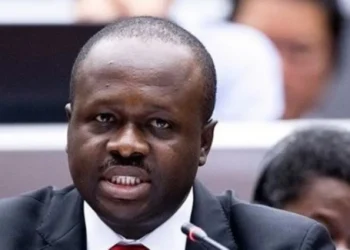The Ghana Stock Exchange (GSE) has experienced its lengthiest IPO drought on the main board, with no new Initial Public Offerings for five consecutive years, a period that surpasses the previous record of three years set back in 1991 when trading began.
This prolonged absence of IPOs is attributed to the country’s severe economic crisis. The last IPO on the GSE took place in 2018 when MTN Ghana offered a 35 percent stake for $750 million, falling short of its target by selling only about 15 percent at $238.5 million. Despite not meeting its goal, this offering still stands as the highest in the history of the market.
For over a decade, the Ghana Stock Exchange (GSE) has faced challenges in bringing new companies to its main market, with just four firms making their way onto the exchange during this period.
These companies include Mega African Capital Limited, Agricultural Development Bank (ADB), MTN, and, most recently, Asante Gold in mid-2022. Notably, Asante Gold was listed through an introduction, a more straightforward method that enables companies to go public by selling existing shares rather than issuing new ones.
During this timeframe, six companies were also included on the Ghana Alternative Market (GAX), which is a secondary board designed for small-sized enterprises with more lenient listing requirements and a focus on capital raising potential. However, the stock prices of these companies have remained relatively stable.
The prolonged absence of IPOs has taken market insiders by surprise. Many had anticipated a thriving market when Ken Ofori-Atta, a well-known advocate for the market and whose company, Databank, facilitated numerous successful IPOs, assumed the role of finance minister. However, that expected boost has not materialized. The market’s performance has been mixed since it emerged as Africa’s top-performing market in 2018, with the added challenge of the COVID-19 pandemic exacerbating its difficulties.
Global Stock Markets Experience Turbulence
Global stock markets have experienced turbulence since 2021 due to central banks implementing significant interest rate increases in an effort to control surging inflation, which has led to a decrease in the valuations of equities.
In Ghana, inflation has consistently exceeded the Bank of Ghana’s upper target of 10 percent for 15 consecutive months, reaching 54.1 percent in December 2022 before displaying signs of a decrease. As of September 2023, the inflation rate stood at 38.1 percent, as reported by the Ghana Statistical Service.
Actions taken to address inflationary pressures resulted in a 16.5 percent increase in the central bank’s main lending rate over the past two years, leading to a more restrictive financial environment and hindering economic growth. During the last 18 months, the local currency depreciated by over 50%, while the fixed-income market experienced its most significant sell-offs in history.
Amid the prevailing uncertainty, the government has taken steps to restructure the nation’s total public debt, estimated at around US$50 billion, in order to secure a US$3 billion bailout agreement with the International Monetary Fund. The domestic phase of this debt restructuring led to significant losses for local bondholders, further eroding investor confidence.
However, even before the economic challenges emerged, equities had been struggling to regain their true value for some time. This situation discouraged companies from entering the market, as launching an IPO during such turbulent times could result in down rounds, where funds are raised at reduced valuations – a situation new entrants would prefer to avoid.
The government has frequently alluded to the possibility of listing certain financially viable state-owned enterprises on the GSE, offering hope for increased market activity.
In a September 2022 interview, Public Enterprise Minister Joseph Cudjoe disclosed that three state-owned enterprises had met the necessary regulatory requirements and were expected to go public by the end of the year.
“We have selected three to begin with: the Ghana Reinsurance Company, Tema Development Corporation, and GIHOC Distilleries Company. They will have the opportunity to raise capital, expand their operations, and inject more excitement into the market,” Ken Ofori-Atta said.
However, more than a year later, these companies have yet to be listed, with various explanations and revised timelines circulating in the local media. Observers of the market are hopeful that the listing of these state-owned enterprises could rekindle optimism, but ongoing economic concerns and investor losses resulting from debt restructuring have set the stage for a quieter 2024.
READ ALSO: What Happened In Garu And Tempane



















